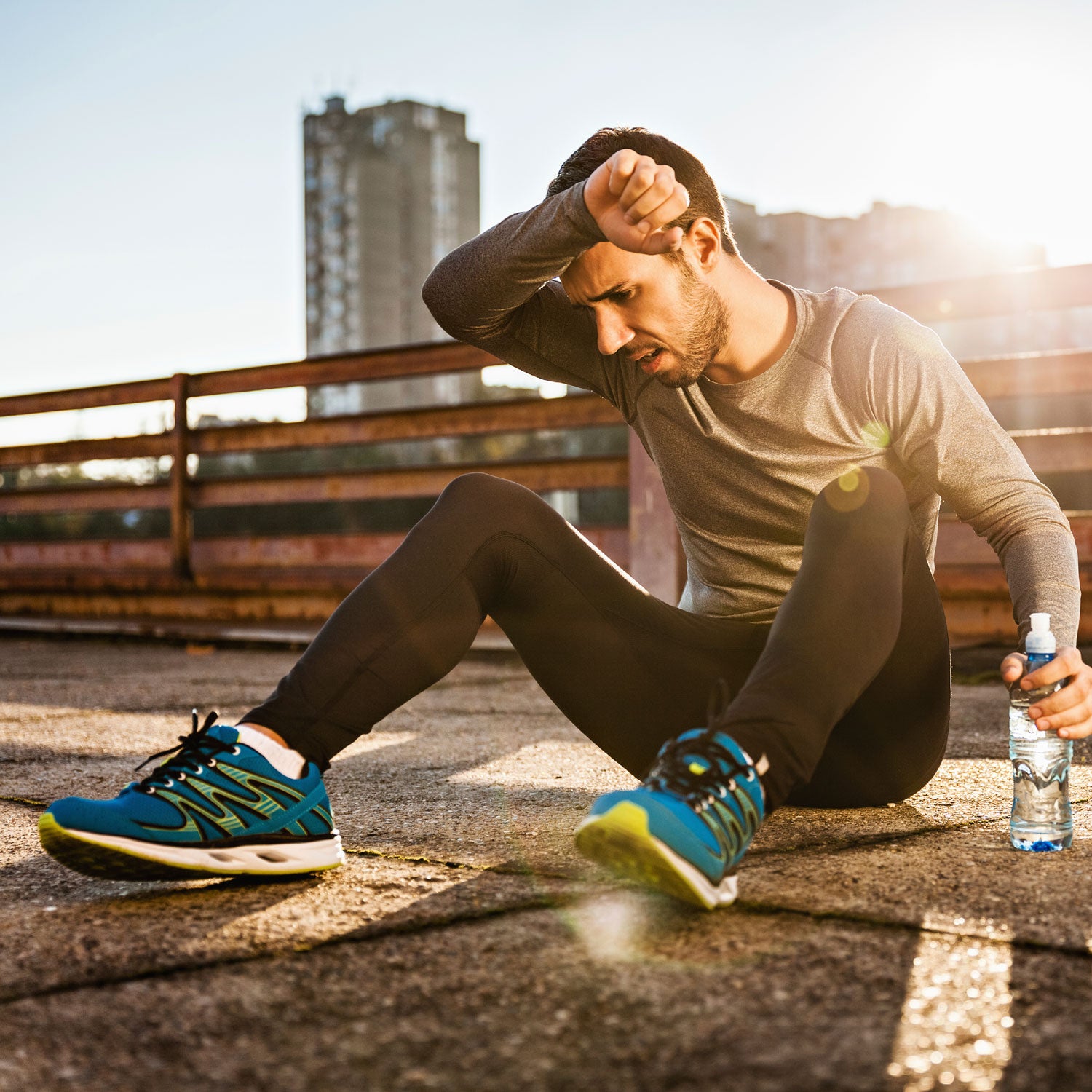The average person sweats between 0.8 liters (27 ounces—about the size of a large Slurpee) and 1.4 liters (47 ounces) during an hour of exercise, says , Assistant Professor of Exercise Science at Fairmont State University. That’s equal to around one to three pounds of body weight per hour.��
The longer answer: How much you sweat varies depending on a slew of factors like how many sweat glands you have—between 2 and 5 million; your resting body temp; the outdoor temperature; and the exercise you’re doing. The highly trained among us could lose even more fluids, too, says , co-director of the Exercise and Environmental Physiology Labs at the University of Oregon: about two to three liters per hour.��
To understand why that is you have to understand why we sweat in the first place: and that’s “because our muscles are actually very inefficient machines,” says Ryan. “About 60 percent of the calories we burn during muscle contractions are lost to heat production.” And the more calories we burn—by working out longer or harder—the more heat we produce.��
When perspiration on the surface of the skin evaporates, heat is lost and the blood is cooled, thus cooling our core body temperature. So athletes sweat more because they’ve often become more efficient at lowering their core body temp, which keeps them from overheating, allowing them to workout out harder and longer.��
But know this: “Sweat rate has nothing to do with the rate that you burn fat or calories,” Ryan says. “An individual’s perspiration rate is largely dependent on their genetic make-up and how their body responds to heat stress.”��
As the mercury inches up, it takes your body somewhere around 10 to 14 days to acclimatize to new warmer temps, he says. Your heart will adapt and work to improve cardiac function—it’ll increase plasma blood volume, so your body will have more water in the blood stream that it can be utilized by the sweat glands to produce more sweat. This will also decrease the thickness of the blood so it can more effectively transfer heat through the surface of the skin, Ryan says.
After spending eight to 10 days into hotter weather, you’ll start to see a change in muscle metabolism that allows your muscles to work more efficiently, which will decrease body heat production and lower core-body temperature, he explains. “As you acclimatize to the heat, your body will start to shed fluids sooner [i.e. sweat]—at a lower body temp—after the start of exercise.”��
But if you feel like you’re sweating buckets year-round, don’t sweat it: Some people simply lose more fluids than others. Men perspire more than women, for example, because they are generally taller and bigger, Minson says. Some that testosterone can enhance sweating response, too. Certain meds can also leave you dripping: “Some anti-depressants and anti-anxiety meds, allergy medications, decongestants, and weight loss medications can increase sweat rate,” says Ryan. Caffeine has a similar effect—so while a little bit of Joe can help improve performance, it could also be to blame for your pit stains.
��


